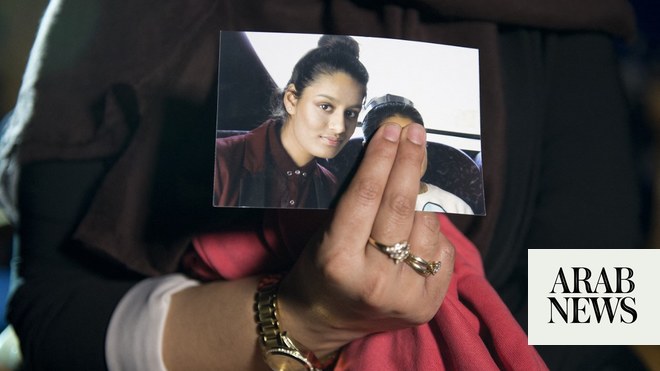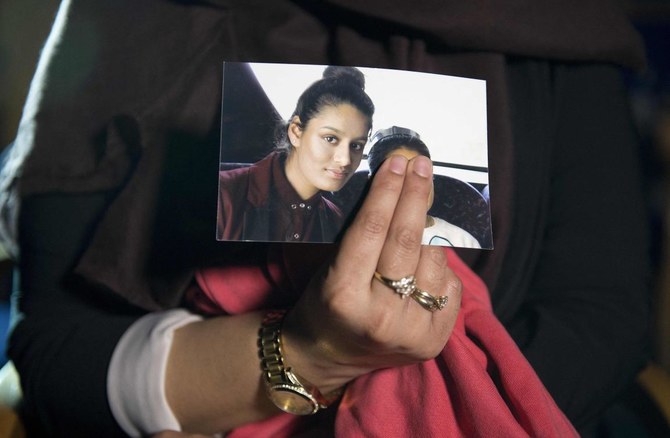
At first glance, Shamima Begum and I don’t have much in common. She fled Britain when she was a schoolgirl to join Islamic State. I came to the UK from Sri Lanka in 2005 and qualified here as a public and human rights lawyer. I became a British citizen in 2015.
Begum was born in the UK as a British citizen on the basis of her parents’ immigration status. She was stripped of her citizenship using a controversial power introduced after the 2005 London bombings, which allows the government to remove British citizenship from dual nationals if doing so is “conducive to the public good”. The use of this power increased from 2010 and further increased in 2014.
Like Begum, I too could be stripped of my British citizenship without warning under a proposed rule change quietly added to the nationality and borders bill, thanks to a provision known as clause 9. This would exempt the government from having to give notice if it is not “reasonably practicable” to do so, or in the interests of national security, diplomatic relations or otherwise in the public interest. How does the government define what is in the public interest? Could that include displeasing the government of the day, even if no crime is committed and no law is broken?
I renounced my Sri Lankan citizenship to become a proud British citizen. Begum had her British citizenship taken away from her after then-home secretary Sajid Javid cancelled it on security grounds. The supreme court ruled that the government was entitled to prevent her from returning to the UK to fight this decision. A tribunal ruled that removing her British citizenship was lawful because she was a citizen of Bangladesh – her parents’ heritage – by descent, a point disputed by the government of Bangladesh.
My childhood was spent in Sri Lanka. Under the new proposals I could be deprived of my British citizenship without notice or notification. Dual citizenship is not a pre-condition. Begum grew up in the UK. She has been made stateless simply because the British government believes she is eligible for citizenship of Bangladesh.
The power to remove British citizenship has been regarded as draconian and controversial since it was added to the statute book in 2006, but the proposed extension of these rules will disproportionately affect people of colour. Begum and I both have heritage from the same region of the world, and we both have brown skin.
Some kind of advance warning of the government’s intention to remove citizenship at least gives time to prepare a defence and appeal. To no longer have this “heads up” will leave victims of such decisions winded and on the back foot – presumably this is why the “no notice” clause is being added to the legislation.
In the case of R v Secretary of State for the Home Department, 2003, Lord Steyn emphasised the importance of notice as a key component of fair decision-making, stating that fairness is the guiding principle of our public law, and that fairness requires that a decision takes effect only upon communication.
The Home Office has said that British citizenship is a privilege, not a right. A government spokesperson recently told the Guardian: “Deprivation of citizenship on conducive grounds is rightly reserved for those who pose a threat to the UK or whose conduct involves very high harm. The nationality and borders bill will amend the law so citizenship can be deprived where it is not practicable to give notice, for example if there is no way of communicating with the person.”
The New Statesman has conducted research into the numbers of people and their nationalities who could potentially be affected by the new clause. Using 2011 census data it found that 5.6 million people in England and Wales could potentially be affected by the new rule. Just one in 20 are white, while half of British Asians and 39% of black Britons are potentially at risk.
Of course this extrapolation of census data does not mean that all of us will be unceremoniously booted out of the UK on the whim of the home secretary. But what it does do is instil fear and uncertainty into our hearts. For millions of us the UK is the only place we consider home but clause 9 is whispering in our ears: “Don’t be too sure about that.” Psychologically, the rug of our secure lives here is being pulled from under our feet. Those of us among the 5.6 million who are people of colour will sleep less easily in our beds if this clause becomes law.
Naga Kandiah is a solicitor at MTC Solicitors












